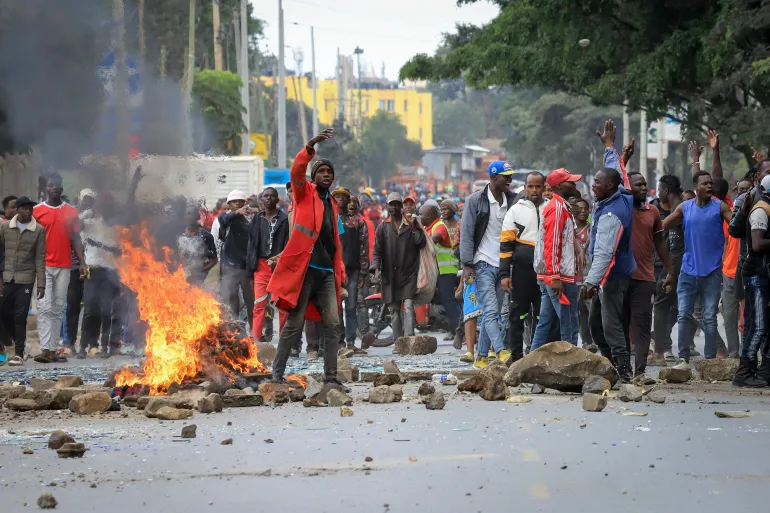
In response to violent protests in its largest cities, authorities in the East African nation have pledged to eliminate several taxes, including the value-added tax on bread and a wealth levy on motor vehicles.
Treasury Secretary Njuguna Ndung’u said in a letter to lawmakers that any changes in these measures and proposed spending reductions must adhere to budgetary laws, Bloomberg reported.
However, protesters remain unsatisfied, demanding that President William Ruto’s government abandon the entire plan to raise 302 billion shillings from new taxes. They have pledged to escalate their demonstrations to eight additional towns on Thursday.
Kenya is committed to improving tax revenues as part of its agreement with the IMF and has secured a preliminary agreement to access more funding contingent on the country implementing fiscal reforms.
“More borrowing appears inevitable,” and Kenya may be forced back to international capital markets, according to David Omojomolo, Africa economist at Capital Economics Ltd. That will be “tricky given yields are still quite expensive and concerns about Kenya’s fiscal sustainability beyond the near-term have not gone away,” he told Bloomberg.
Ruto’s second budget since assuming office in 2022 forecasts record revenue of 2.92 trillion shillings for the fiscal year starting in July.
To cover a financing gap of 3.3% of gross domestic product (GDP), down from 5.7% in the current fiscal period, funding will come from a combination of foreign and domestic borrowing.









